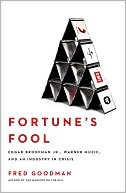Category Books
- Fiction Books & Literature
- Graphic Novels
- Horror
- Mystery & Crime
- Poetry
- Romance Books
- Science Fiction & Fantasy
- Thrillers
- Westerns
- Ages 0-2
- Ages 3-5
- Ages 6-8
- Ages 9-12
- Teens
- Children's Books
- African Americans
- Antiques & Collectibles
- Art, Architecture & Photography
- Bibles & Bible Studies
- Biography
- Business Books
- Christianity
- Computer Books & Technology Books
- Cookbooks, Food & Wine
- Crafts & Hobbies Books
- Education & Teaching
- Engineering
- Entertainment
- Foreign Languages
- Game Books
- Gay & Lesbian
- Health Books, Diet & Fitness Books
- History
- Home & Garden
- Humor Books
- Judaism & Judaica
- Law
- Medical Books
- New Age & Spirituality
- Nonfiction
- Parenting & Family
- Pets
- Philosophy
- Political Books & Current Events Books
- Psychology & Psychotherapy
- Reference
- Religion Books
- Science & Nature
- Self Improvement
- Sex & Relationships
- Social Sciences
- Sports & Adventure
- Study Guides & Test Prep
- Travel
- True Crime
- Weddings
- Women's Studies
Fortune's Fool: Edgar Bronfman, Jr., Warner Music, and an Industry in Crisis »

Authors: Fred Goodman
ISBN-13: 9780743269988, ISBN-10: 0743269985
Format: Hardcover
Publisher: Simon & Schuster Adult Publishing Group
Date Published: July 2010
Edition: (Non-applicable)
Author Biography: Fred Goodman
Book Synopsis
In 1999, when Napster made music available free online, the music industry found itself in a fight for its life. A decade later, the most important and misunderstood story—and the one with the greatest implications for both music lovers and media companies—is how the music industry has failed to remake itself. In Fortune’s Fool, Fred Goodman, the author of The Mansion on the Hill, shows how this happened by presenting the singular history of Edgar M. Bronfman Jr., the controversial heir to Seagram’s, who, after dismantling his family’s empire and fortune, made a high-stakes gamble to remake both the music industry and his own reputation.
Napster had successfully blown the industry off its commercial foundations because all that the old school label heads knew how to do was record and market hits. So when Bronfman took over the Warner Music Group in 2004, his challenge was to create a new kind of record executive.
Goodman finds the source of the crisis in the dissolution of the old Warner Music Group, the brilliant conglomerate of Atlantic, Elektra, and Warner Bros. Records. He shows how Doug Morris, the head of Atlantic Records, rose through the ranks and rode the CD bonanza of the 1990s to enormous corporate and personal profit before becoming embroiled in an ego-driven corporate turf war, and how all of Warner’s record executives were blindsided when AOL/Time-Warner announced in 2003 that it wanted nothing more to do with the record industry. When the music group was finally sold to Bronfman, it was a ghost of itself.
Bronfman built an aggressive, streamlined team headed by Lyor Cohen, whose relentless ambition and discipline had helped build Def Jam Records. They instituted a series of daring initiatives intended to give customers legitimate online music choices and took market share from Warner’s competitors. But despite these efforts, illegal downloads still outnumber legitimate ones 19–1.
Most of the talk of a new world of music and media has proven empty; despite the success of iTunes, even wildly popular sites like YouTube and MySpace have not found a way to make money with music. Instead, Warner and the other labels are diversifying and forcing young artists to give them a cut of their income from touring, publishing, and merchandising. Meanwhile, the average downloader isn’t even meeting forward-thinking musicians halfway. Each time a young band finds a following through music websites, it’s a unique story; no formula has emerged. If one does, Warner is probably in a better position than anyone to exploit it. But at the end of the day, If is the one-word verdict on Bronfman’s big bet.
Publishers Weekly
A former editor with Rolling Stone, Goodman (The Mansion on the Hill: Dylan, Young, Geffen, Springsteen, and the Collision of Rock and Commerce) probes further into the record business after conducting three years of interviews with Seagram’s Edgar Bronf-man Jr., CEO of Warner Music Group since 2004. The 1960s’ glory days of WMG (the Atlantic, Elektra, and Warner Bros. labels) are only a memory. Bronfman, who lost billion in failed deals, has a great passion for the entertainment industry, yet he faces huge difficulties because WMG has been "blown off its foundation" by "the gale force of cyberspace." What does the future hold if free digital copies are available of any recording? Beginning with Bronfman’s birth, Goodman covers his "dynastic destiny" from rebellious teen and anointed Seagram’s heir to his move into the film industry and Broadway, gaining full access to a trust worth millions on his 25th birthday. Covering the transitions from LP to CD, the rap controversies, musicians, mergers and acquisitions, hustlers and heavyweights, this hefty, well-researched book traces the trajectories of such companies as Apple, MCA, and Vivendi as CD sales plummeted, and the music business became a world of iTunes, MP3s, and online marketing. (July)
Table of Contents
Subjects
 Business Biography
Business Biography  Specific Professions - Biography
Specific Professions - BiographyBiography
 Musicians
Musicians  General & Miscellaneous Music Biography
General & Miscellaneous Music BiographyBiography
 All Biography
All Biography  Business Biography
Business BiographyBiography
 All Biography
All Biography  Music Biography
Music BiographyBusiness Books
 Business Biography
Business Biography  Specific Professions - Biography
Specific Professions - BiographyEntertainment
 Music Books
Music Books  Music Biography
Music BiographyEntertainment
 Music Books
Music Books  Music Business
Music BusinessNonfiction
 All Nonfiction
All Nonfiction  Business Biography
Business BiographyNonfiction
 Biography
Biography  Business Biography
Business BiographyNonfiction
 Biography
Biography  Musicians
MusiciansNonfiction
 Biography
Biography  All Biography
All Biography
